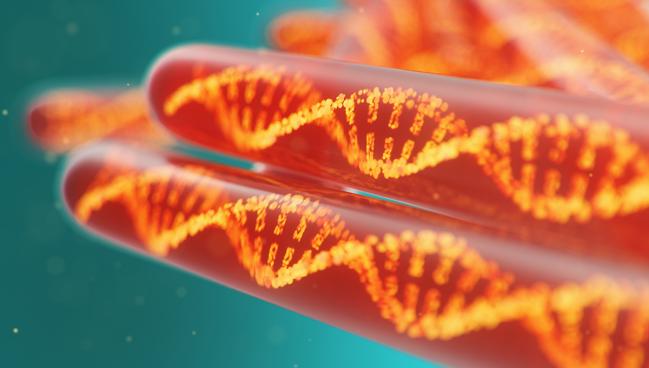Topline Data Point to Promise for VERVE-102 Gene-Editing Therapy
The results show dose-dependent LDL-lowering and, in contrast to what was seen previously with VERVE-101, no safety issues.

These latest results follow findings from the Heart-1 trial of VERVE-101, an earlier iteration of the therapy that the company paused testing for in April 2024, after a study participant developed elevated liver enzymes and low platelet levels. The side effects were thought to be related to the therapy’s lipid-nanoparticle (LNP) coating.
Both VERVE-101 and VERVE-102 are CRISPR gene-editing medicines that work through a single DNA base-pair change to inactivate the PCSK9 gene in the liver, with the goal of reducing LDL cholesterol. According to Verve Therapeutics, the new product uses an LNP coating that incorporates the sugar molecule GalNAc, or N-acetylgalactosamine. This feature allows it to access liver cells using either asialoglycoprotein receptors or LDL receptors.
The new topline data from Heart-2 show that a single infusion of VERVE-102 led to dose-dependent decreases in blood PCSK9 and LDL levels among 14 patients with heterozygous familial hypercholesterolemia and/or premature coronary artery disease with at least 28 days of follow-up. The study included three weight-based cohorts given doses of 0.3, 0.45, and 0.6 mg/kg. For the four participants who received a 0.6 mg/kg dose, the mean reduction in LDL was 53% and the maximum reduction was 69%. The total RNA dose similarly tracked well with LDL levels.
Additionally, Verve Therapeutics said the therapy was well-tolerated: there were no treatment-related serious adverse events, dose-limiting toxicities, or cardiovascular events. One patient experienced an infusion-related reaction (grade 2) that resolved with acetaminophen. There also were no clinically significant changes or dose-dependent trends in alanine aminotransferase, aspartate aminotransferase, bilirubin, or platelets.
In a press release, Eugene Braunwald, MD (Brigham and Women’s Hospital, Boston, MA), who serves on the company’s scientific advisory board, highlights the potential of a single dose for lifelong benefit. “With existing treatments, approximately half of patients discontinue their prescribed lipid-lowering therapy within 1 year, resulting in poor real-world control of LDL-C,” he comments. “VERVE-102 holds great promise to transform the care of ASCVD and move that care from daily pills or intermittent injections over decades to a one-dose future for sustained LDL-C lowering.”
Verve Therapeutics plans to release final dose-escalation data from Heart-2 in the latter half of 2025, and to soon enroll the first patient in its phase II clinical trial, being conducted in the United Kingdom, Canada, Israel, Australia, and New Zealand. The company is also working on several other gene therapies. These include VERVE-201 targeting the ANGPTL3 gene, which elevates LDL and triglyceride levels, as well as VERVE-301 targeting the LPA gene, which affects Lp(a) production.
Caitlin E. Cox is Executive Editor of TCTMD and Associate Director, Editorial Content at the Cardiovascular Research Foundation. She produces the…
Read Full BioSources
Verve Therapeutics. Verve Therapeutics announces positive initial data from the Heart-2 phase 1b clinical trial of VERVE-102, an in vivo base editing medicine targeting PCSK9. Published and accessed on: April 14, 2025.





Comments